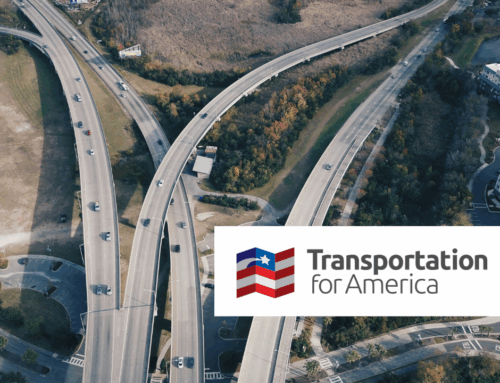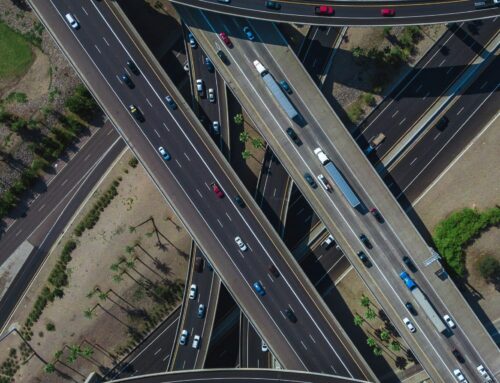Right before lawmakers in the House of Representatives headed home for Memorial Day events, parades, and picnics, they passed legislation to keep cash flowing to transportation projects, at least until the Highway Trust Fund goes bust at the end of the July. Since Senators are eyeing the exits as well, this will likely become law before the current authorization expires at the end of May.
Talk about doing the bare minimum. Calling this action kicking the can would be generous. Maybe nudging or tapping? As avid readers of the Weekly Wastebasket (that’s you, right?) know, for years the Highway Trust Fund (HTF) hasn’t had the revenue to match what lawmakers want to spend. Inflation and increased construction costs have reduced the purchasing power of the 18.4 cent per gallon gas tax that funds the HTF by almost 40 percent since it was set in 1993. And while greater fuel efficiency has reduced revenue, demand for infrastructure investment has only increased. In fiscal year 2015, the gas tax will bring in roughly $39 billion, while HTF outlays are expected to top $52 billion.
Even with gas prices at historic lows compared to recent years, very few lawmakers are willing to increase the tax (although there is a bipartisan House proposal to index the tax to inflation, have a commission make revenue recommendations, and if that fails, increase the tax to make up for shortfalls). Instead what we continue to find are gimmicks and piece-meal fixes. Or even gimmicks upon gimmicks.
The most common gimmick being batted about is repatriation. Essentially, companies have parked an estimated $2.1 trillion worth of profits overseas, deferring payment of income tax until that money is returned (repatriated) to the U.S. The idea is that if you dramatically lower the 35 percent corporate tax rate for this money, it will come back to the U.S. and while you won’t get all the revenue Uncle Sam was promised, some revenue is better than no revenue. There are different proposals along these lines from the Administration and lawmakers in both parties in both Houses of Congress.
There are a few problems with repatriation, and not just as a means of revenue for transportation. First, we tried this trick a decade ago, and what happened was even more money is parked overseas now after a few years than there was then. We rewarded bad behavior and companies learned it pays to park cash and wait. Fool me once… So without real comprehensive tax reform, we’ll be in the same place, or worse, in a few years. Another problem is these proposals do nothing to address our broken transportation funding system. An infusion of cash could bailout lawmakers from having to confront the problem for a few years, but then we’ll be back in the same place with less revenue than what Congress wants to spend.
As if the repatriation isn’t bad enough, some policymakers are looking to bundle repatriation, highway trust fund, and tax reform in the same package. So in the next two months lawmakers are supposed to craft a transportation bill and come up with agreed upon tax reform solutions that they haven’t been able to figure out in the last two decades? C’mon. This kind of, dare we say grand bargain, may be what is needed. But complicated decisions, like determining transportation investments or crafting a tax code that’s simpler, flatter, and fairer are too important to simply be tacked onto other bills as an afterthought. We need a robust debate.
The user pays principle has been a hallmark of transportation funding since the Eisenhower days, but we haven’t kept pace with prices or technology. Because different vehicles that “use” the roads the same use different amounts of gas, a gas tax isn’t a true user fee per se. But for all the flaws of the current HTF structure, it’s a lot closer to user pays than a tax on repatriated income from large companies (income that if otherwise repatriated would go to reducing deficits in the general treasury). Lawmakers need to either learn to live within their means, or come up with revenue from responsible solutions. Oregon has been experimenting with vehicle miles travelled taxes, other states rely heavily on tolling, and others are experimenting with innovative financing mechanisms. There are a lot of options out there to close the gap between demand for investment and tolerance for bearing the cost of those investments. They may not all be popular – but they are a heck of lot more responsible than can kicking and revenue robbing.










